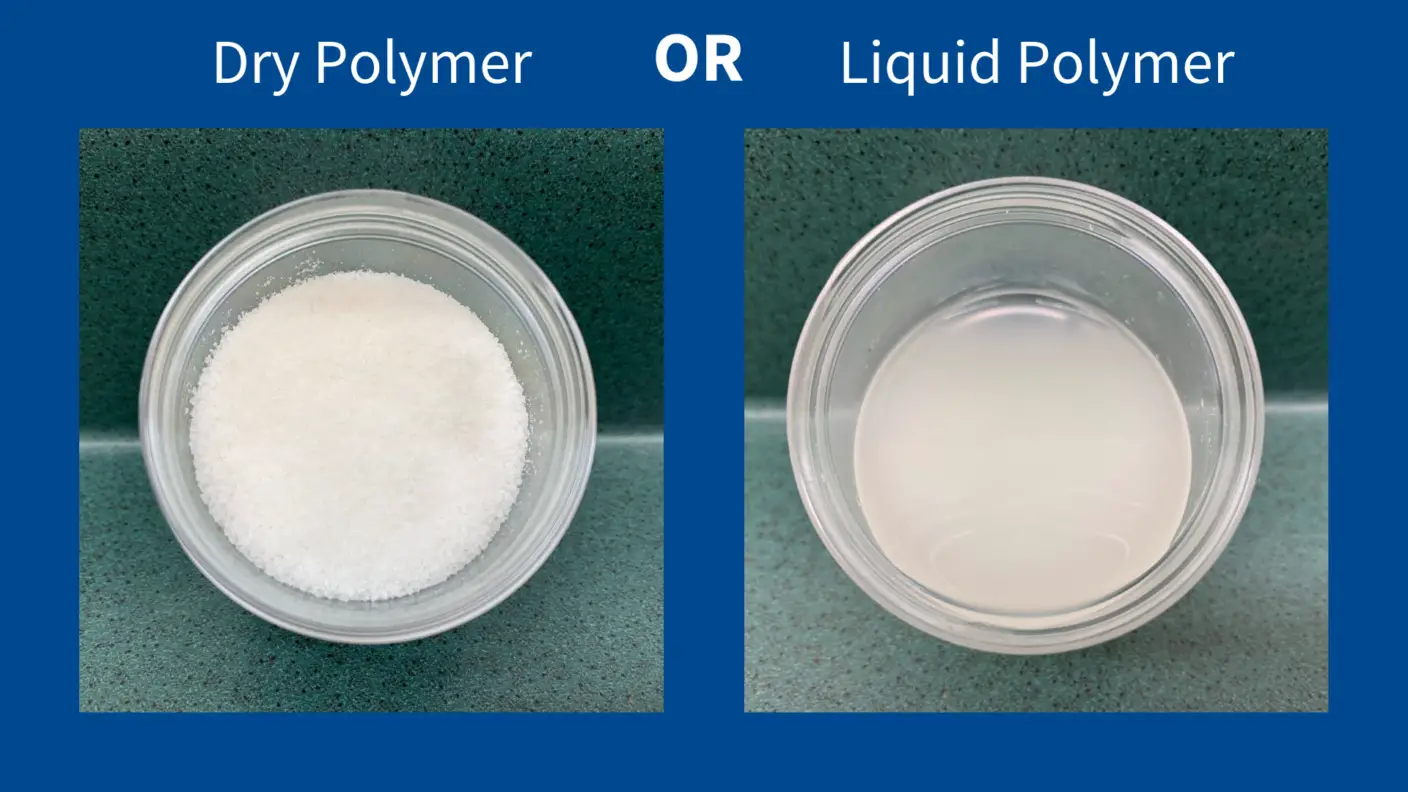A Solution for Sanitation, Wastewater Treatment & Renewable Energy
POLYMER TREATMENT CHEMICALS
Your Experts in Polymers
Designed to increase floc density, enhance clarity, improve settling characteristics and dewater sludge. Contact us today to learn more about our product

TYPES OF WATER TREATMENT POLYMERS WE SUPPLY
Both anionic and cationic polymers may also be grouped into other categories depending on their form and the method of delivery. For example, you may opt for a dry or a liquid polymer at your facility.
- Liquid polymers in water treatment
Liquid polymers are also known as emulsion polymers because they are added to wastewater in many small drops that do not dissolve into the water mixture. This type of polymer has a lower concentration of active molecules compared to dry polymers, which means the effectiveness of the treatment is diluted by the method of delivery.
- Dry polymers in water treatment
Dry polymers contain a greater concentration of active molecules. This makes the dry option a far more effective flocculant than a liquid or emulsion polymer.
HOW ARE POLYMERS USED IN WATER TREATMENT?
Polymers are very useful in the treatment of wastewater. In a basic sense, these molecular chains work to separate the solid content of the wastewater from its liquid content. Once the two components of wastewater are separated, it is far easier to complete the treatment process by isolating solids and treating liquids to leave behind clean water, ready for safe disposal or for use in other industrial applications.
In this sense, a polymer is a form of flocculant — a substance that reacts with solids suspended in the water to form clumps, known as flocs. This is very useful in the wastewater treatment process, and so polymers are often used by themselves, achieving flocculation so that solids can be easily removed. To get the best from the process, however, polymer flocculants are often deployed alongside a coagulant.
A coagulant takes the flocculation process to the next level, bringing flocs together to form a thick sludge, which can then be removed or treated further. Polymer flocculation may take place before a coagulant is added, or it may be applied to accelerate the process of electrocoagulation. As there are both advantages and disadvantages to electrocoagulation, optimizing the procedure with a polymer flocculant is a highly attractive proposition for facility managers.
Do you need help choosing the right polymer for your process?
Express Drainage Solutions Kenya Limited will be happy to help you select the best combination of polymers for your specific application.
Related Products & Services:
Who We Are
We work to provide better products and solutions for our customers in their
homes, offices, restaurants, and industrial facilities around Kenya and Africa at large.
Our complete line of water solutions are trusted by many and …
